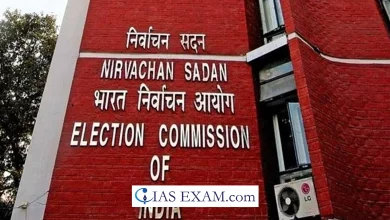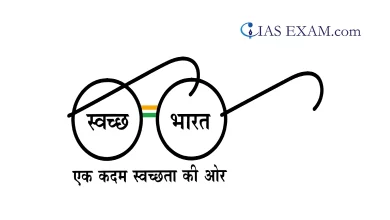Why Regulation of Political Funding is Important?
GS Paper 2 - Indian Polity & Democracy, RPI Act, 1951

Context
Recently, the five-member Constitution Bench of Supreme Court (SC) in a unanimous verdict, upheld every challenge to every aspect in the electoral bonds case, declaring this scheme of Political Funding as unconstitutional. It also ordered the SBI to stop issuing electoral bonds immediately and submit all information of the bonds sold, and the names of all the donors and recipients, to the Election Commission of India (ECI).The regulation of political funding in India is a critical aspect of ensuring the integrity of the democratic process. The nexus between money and politics has been a longstanding concern, prompting continuous efforts to establish effective mechanisms that balance the need for financial support with the imperative of transparency and accountability.
Issues and Challenges surrounding Political Funding in India
- Opaque Funding Sources: One of the primary challenges in regulating political funding in India is the opacity surrounding the sources of funds. Political parties often receive donations from various sources, including individuals, corporations, and other entities, without clear disclosure. This lack of transparency raises concerns about the potential influence of vested interests on political decisions.
- Anonymous Donations: The prevalent practice of accepting anonymous donations compounds the transparency issue. The current legal provision allowing political parties to receive anonymous contributions of up to Rs. 2,000 undermines efforts to trace the sources of funding accurately. Tackling this challenge requires revisiting and revising the existing legal framework to enhance disclosure requirements.
- Electoral Bonds Controversy: The introduction of electoral bonds as an alternative to cash donations has been a contentious issue. While proponents argue that it promotes transparency by reducing cash transactions, critics contend that the scheme lacks transparency in itself. The anonymity of donors in the electoral bond system has raised concerns about the potential for clandestine funding, necessitating a thorough review of the scheme.
- Lack of Stringent Penalties: Enforcement mechanisms and penalties for non-compliance with funding regulations remain a weak link in India’s regulatory framework. The absence of severe consequences for violations can undermine the effectiveness of existing regulations. Strengthening penalties and ensuring their consistent enforcement are crucial steps toward creating a deterrent against malpractices in political funding.
- Corporate Contributions and Quandaries: Political contributions from corporations pose a unique set of challenges. While such contributions are legal, the fine line between legitimate support and undue influence is often blurred. Striking a balance between allowing corporate participation in the democratic process and preventing the distortion of political decisions due to financial interests is a delicate task that requires nuanced regulation.
- Electoral Expenditure and Campaign Financing: The escalating costs of election campaigns contribute to the challenges of political funding regulation. The current limits on campaign expenditure may not be sufficient, leading to the reliance on unaccounted funds. Comprehensive reforms in campaign financing, including reevaluation of expenditure limits and exploring avenues for state funding, are essential to create a more level playing field.
- Need for Comprehensive Electoral Reforms: The broader electoral system plays a pivotal role in shaping the funding landscape. Electoral reforms, including proportional representation, revisiting the first-past-the-post system, and exploring state funding of elections, are essential components of a comprehensive strategy to address the challenges associated with political funding in India.
Changing Dynamics in Indian Politics
- Involvement of Third Parties: India has witnessed a surge in the engagement of political consultancies, campaign groups, and civil society organizations in political campaigns, mirroring trends seen in the US.
- Need for Rethinking: The evolving political landscape necessitates a reevaluation of India’s 20th-century political funding framework.
Way Forward
The regulation of political funding in India stands at a critical juncture, demanding comprehensive reforms to address the myriad challenges. Transparent and accountable political financing is essential for upholding the principles of democracy and ensuring that elected representatives remain accountable to the people rather than to specific interest groups. To navigate the complex terrain of political funding, India must revisit existing laws, particularly those pertaining to anonymous donations and electoral bonds, strengthen penalties for violations, and explore innovative models for campaign financing. Additionally, holistic electoral reforms are indispensable to create a political landscape that fosters fair competition and represents the diverse voices of the nation.
SOURCE: The Indian Express





.png)



